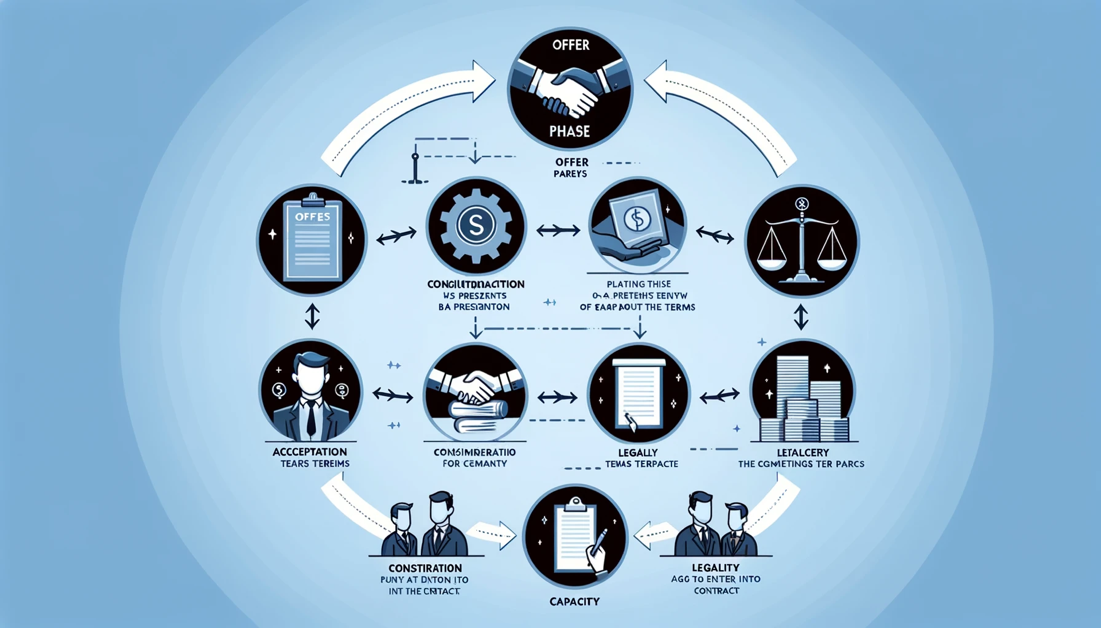
In business transactions, understanding the nuances of contract formation is paramount for ensuring the enforceability and protection of rights within any agreement. This post specifically addresses common law contracts (i.e. those for things other than the sale of goods).
Contract Formation – Offer
An offer is the initial step in the formation of a contract. It is a proposal made by one party (the offeror) to another (the offeree), indicating a willingness to enter into a contract on certain terms. For an offer to be legally binding under California law, it must be communicated to the offeree, be sufficiently definite that the terms of the contract can be understood, and show an intent to form a contract upon acceptance. The offer must include key elements such as the subject matter, price, quantity, and any other essential terms that form the basis of the agreement.
Contract Formation – Revocation of Offer
A unique aspect of contract law is the ability of the offeror to revoke their offer before it has been accepted. This revocation must be communicated to the offeree and can be done at any time prior to acceptance, rendering the offer void. However, there are exceptions to this rule, such as when an offer is made irrevocable by statute, through an option contract, or by the offeree’s detrimental reliance on the offer in a manner reasonably foreseeable by the offeror.
Contract Formation – Acceptance
Acceptance is the affirmative response to an offer, signaling the offeree’s agreement to the terms proposed by the offeror. Acceptance must be unequivocal and comply with the terms of the offer for a contract to be formed. It can be expressed through words, deeds, or performance, as specified by the offer. Any variation from the terms of the offer is considered a counteroffer rather than an acceptance, potentially leading to further negotiations or the termination of the offer.
Contract Formation – Acceptance by Silence
Generally, silence or inaction by the offeree does not constitute acceptance. However, under certain circumstances outlined by California law, acceptance by silence can occur. This typically involves situations where the parties have a prior course of dealing or a relationship that justifies the offeror’s expectation of acceptance through silence, or when the offeree takes the benefit of offered services with a reasonable opportunity to reject them and reason to know compensation was expected.
Contract Formation – Rejection of Offer
The rejection of an offer is the clear indication by the offeree that they do not accept the proposed terms. This can be done expressly through words or conduct that unequivocally demonstrate the offeree’s refusal of the offer. Upon rejection, the offer is terminated, and the offeree cannot later accept it, unless the offeror revives the offer or extends a new proposal.
Understanding these key elements of contract formation is essential for any business or individual navigating the complexities of commercial transactions in California. Our firm remains committed to providing our clients with the expertise and guidance needed to secure their legal and commercial interests in this dynamic area of law.
Disclaimer:
The content of this blog is intended solely for informational purposes and does not constitute legal advice. Legal issues are complex and individual; as such, if you seek guidance on a specific legal concern, please consult with a licensed attorney. Contact A.E.I. Law, P.C. at (888)-423-4529 for personalized legal counseling.


